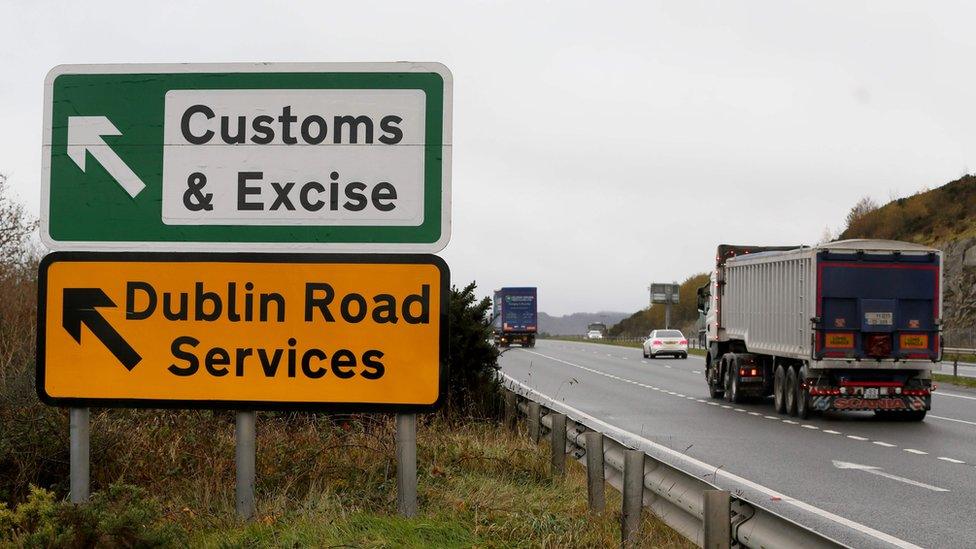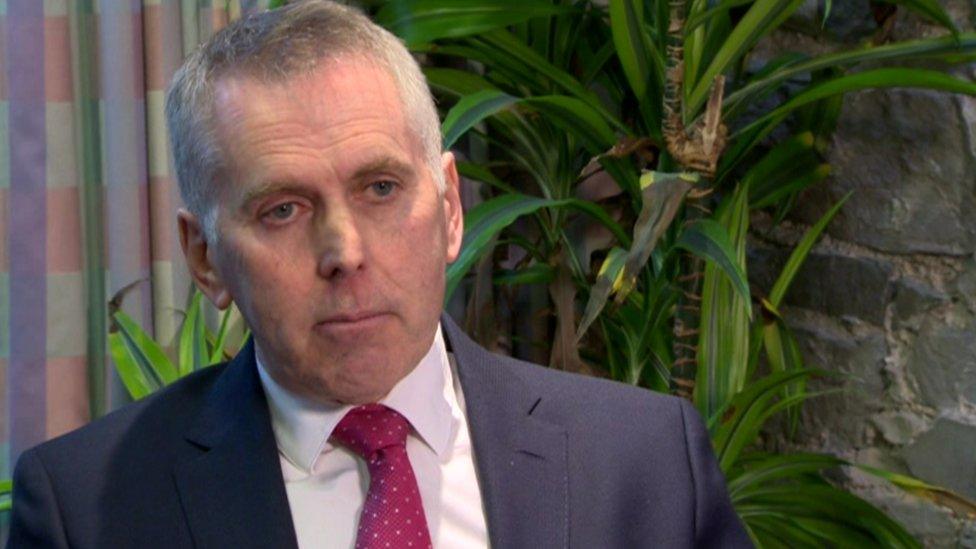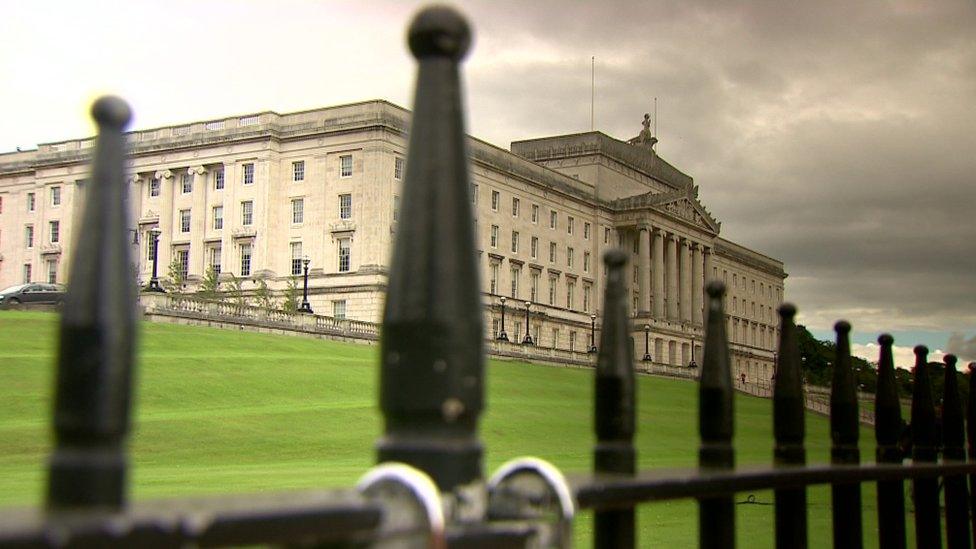Brexit: David Sterling warns of no-deal 'smuggling upsurge'
- Published

David Sterling warned firms may face new legal obligations particularly in relation to customs
The head of the Northern Ireland Civil Service has warned of an upsurge in smuggling and damage to law-abiding firms in the event of a no-deal Brexit.
David Sterling made the comments in a letter to the Northern Ireland Office sent shortly before Christmas.
It dealt with contingency planning and asks for details on how the border will be managed if a deal isn't struck.
He suggested that Stormont officials are still largely in the dark about the UK government's plans for the border.
"We still await UK Government planning assumptions on specific impacts at the Northern Ireland border," the letter stated.
It added that while work is "progressing" towards a policy on the border it is "urgent" that decisions are taken.
Mr Sterling asked for help in "gaining access to more details" around key policy assumptions.
He wrote: "Our companies will need clarity on what obligations they will face, and a realistic projection of whether the approach we take in the next few months will be sustainable."

David Sterling has been left in charge of the day-to-day running of Stormont
Mr Sterling added that the point is not primarily about checks but rather the new legal environment that will face companies trading across the border.
He said that even if both the UK and Irish authorities did not impose checks at the border, businesses would still face new legal obligations particularly in relation to customs.
'Organised crime'
In that scenario businesses would either try to comply with their legal obligations "leading to the certain loss of some economic activity" due to customs tariffs.
Alternatively, businesses might not comply "leading to the likelihood of a step change in the scale and significance of smuggling and organised crime".
Mr Sterling concluded that "in practice we will probably see both of these behaviours arising".
He added that aside from potential economic damage "social, political and constitutional consequences also need to be considered".
The letter also called for "early engagement with Dublin and Brussels" and cautions that border issues cannot just be dealt with as technical matters but require a political process.
The UK government has consistently said it wants to avoid a hardening of the Irish border.
Last month it said it would not impose additional checks on imports of animals and animal products on Day 1 of a no-deal Brexit.
It gave the commitment in a response to a Westminster report on the impact on agriculture in Northern Ireland.
The government said it would take a "risk-based approach" to import checks, however it also warned that position is "time-limited" and could change.
The Irish government's no-deal contingency document, also published last month, avoided any reference to what might happen at the border in a no-deal scenario.
- Published17 September 2018

- Published7 August 2019

- Published30 December 2020
